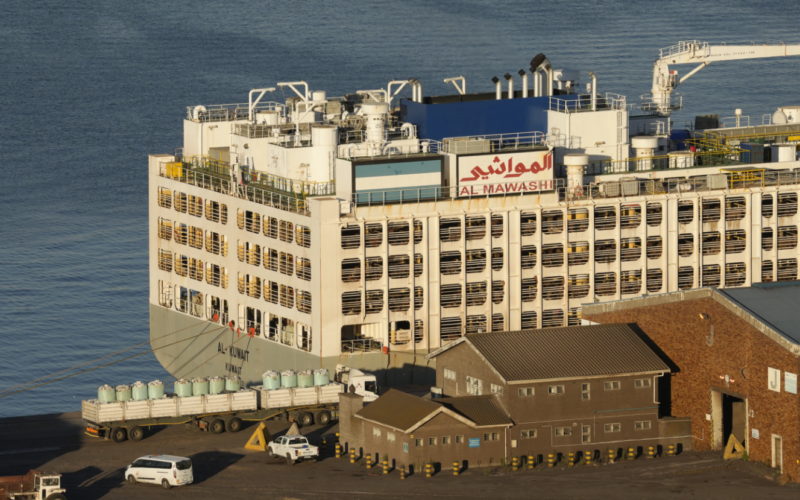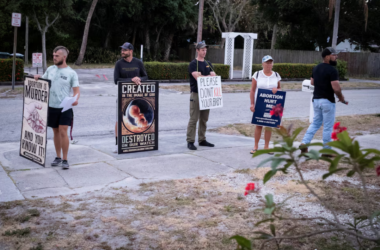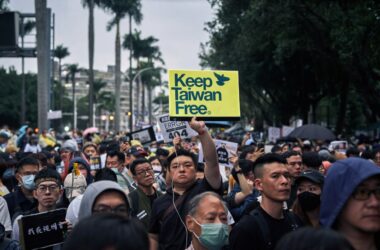Cape Town, South Africa, finds itself grappling with an unprecedented olfactory assault as authorities launch an investigation into a noxious smell that has permeated the cityscape. The source of the foul odor, initially shrouded in mystery, has been traced back to a ship harbored in the city’s port – a vessel laden with a staggering 19,000 live cattle en route from Brazil to Iraq.
Zahid Badroodien, a key official in the mayor’s office overseeing water and sanitation, took to social media to announce the breakthrough in identifying the origin of the pervasive “sewage smell” that has gripped various parts of Cape Town. The culprit: the massive cattle ship docked at the harbor.
The revelation has sparked outrage among animal welfare advocates, who have decried the deplorable conditions endured by the livestock onboard. Describing the stench as “unimaginable,” the National Council of the Society for the Prevention of Cruelty to Animals (SPCA) condemned the live export of animals by sea, citing the detrimental impact on their welfare.
“The smell onboard is unimaginable, yet the animals face this every single day,” the SPCA lamented in a scathing statement, highlighting the dire plight of the cattle subjected to prolonged confinement and unsanitary conditions.
The vessel in question, the Al Kuwait, a Kuwaiti-flagged livestock carrier, has drawn widespread condemnation for its role in facilitating the contentious practice of live animal exports. While docked in Cape Town to load feed for the cattle, the ship’s presence has ignited a furor over the ethical implications of such maritime endeavors.
South Africa’s Democratic Alliance, the governing party in Cape Town, has joined the chorus of dissent, denouncing live exports as a perilous undertaking fraught with risks to animal welfare. The party’s statement underscored the inherent dangers faced by animals during transit, including exposure to extreme weather conditions and confinement in cramped and unsanitary quarters.
The uproar over the Al Kuwait echoes recent controversies surrounding live animal transport, as exemplified by a similar incident involving a stranded ship carrying thousands of cattle and sheep bound for the Middle East. The incident, which culminated in the vessel’s return to Australia after prolonged delays, underscored the inherent hazards and ethical dilemmas associated with the global trade in live animals.
As authorities scramble to address the unfolding crisis in Cape Town, calls for stricter regulations and oversight in the live export industry are growing louder. With the departure of the Al Kuwait imminent, concerns persist regarding the welfare of the animals and the broader ethical considerations surrounding live animal transport on the high seas.








